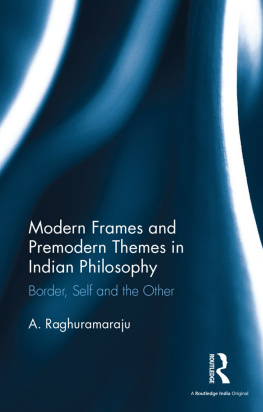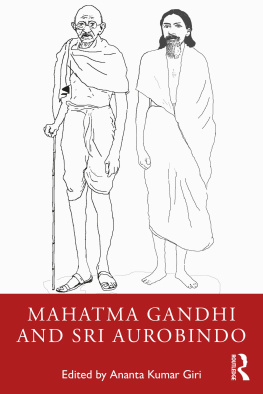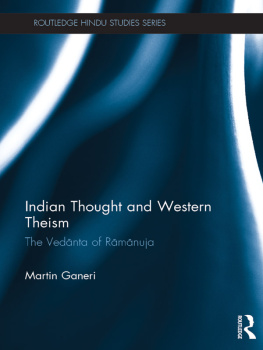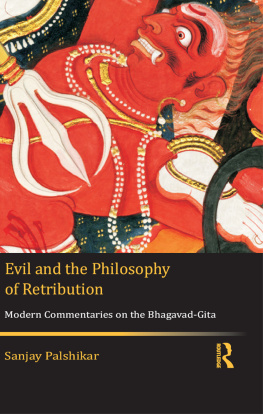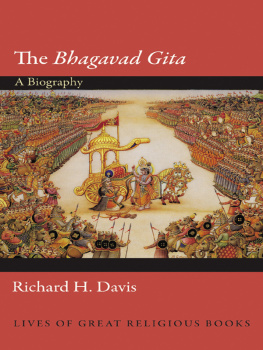Modern Frames and Premodern Themes in Indian Philosophy
This book presents a fascinating examination of modern Indian philosophical thought from the margins. It considers the subject from two perspectives how it has been understood beyond India and how Indian thinkers have treated Western ideas in the context of Indian society. The book discusses the concepts of the self, the other and the border that underline various debates on modernity. In this framework, it proposes the notion of the other as an enabler in taking cue from the lives of Swami Vivekananda, Mahatma Gandhi and Rabindranath Tagore. It focusses on the nature and compulsions of the colonised self, and its response to the body of unfamiliar and sometimes oppressive ideas. The study traces these themes with allusion to the works of Edward Said, Frantz Fanon and Krishna Chandra Bhattacharyya and the Bhagavad Gita. The author exposes the limitations in existing theories of self, the incompatibility between the slavery of self and svaraj in ideas, how the premodern village intersects modern city and democracy, the radical challenges that confront society with its accumulated social evils, inequality, hierarchy and the need for reform and non-violence.
This engaging work will be of interest to scholars and researchers of Indian philosophy, social and political philosophy, Indian political theory, postcolonialism and South Asian studies.
A. Raghuramaraju is Professor, Department of Philosophy, University of Hyderabad, India. He was UGC Principal Investigator for Philosophy for e-PG Pathshala. Among his publications are Debates in Indian Philosophy: Classical, Colonial and Contemporary (2006) and Enduring Colonialism: Classical Presences and Modern Absences in Indian Philosophy (2009). He has edited Ramchandra Gandhi: The Man and His Philosophy (2013) and coedited Grounding Morality: Freedom, Knowledge and Plurality of Cultures (2010). He is also the General Editor of Porugununchi Teluguloki, a series of Telugu translations of books on post-independent India.
Modern Frames and Premodern Themes in Indian Philosophy
Border, Self and the Other
A. Raghuramaraju

First published 2017
by Routledge
2 Park Square, Milton Park, Abingdon, Oxon OX14 4RN
and by Routledge
711 Third Avenue, New York, NY 10017
Routledge is an imprint of the Taylor & Francis Group, an informa business
2017 A. Raghuramaraju
The right of A. Raghuramaraju to be identified as author of this work has been asserted by him in accordance with sections 77 and 78 of the Copyright, Designs and Patents Act 1988.
All rights reserved. No part of this book may be reprinted or reproduced or utilised in any form or by any electronic, mechanical, or other means, now known or hereafter invented, including photocopying and recording, or in any information storage or retrieval system, without permission in writing from the publishers.
Trademark notice: Product or corporate names may be trademarks or registered trademarks, and are used only for identification and explanation without intent to infringe.
British Library Cataloguing-in-Publication Data
A catalogue record for this book is available from the British Library
Library of Congress Cataloging-in-Publication Data
A catalog record for this book has been requested
ISBN: 978-1-138-28408-1 (hbk)
ISBN: 978-1-315-20650-9 (ebk)
Typeset in Goudy
by Apex CoVantage, LLC
Dedicated to
Laxmi Narayan Kadekar
my any time mentor,
for his wise counselling that restored stability to my gaze
which is essential to undertake works like this.
Contents
Part I
Self and other
Part II
Border
Guide
Two tasks of the present study are to lay bare the nature of debate and to understand, through the concept of debate, modern Indian thinkers and social reality. Border and the other, in addition to the self, constitute three structural aspects of a debate. In a debate, the participant knows what his or her position is, knows the position of the other who is the opponent and, more importantly, knows how to relate his or her position to the position of the other. The last task requires the cognitive competence of both translation and critical comparison. At times, one wins a debate not only because ones position is stronger, but also because one knows about the position of the other better than the upholder. Logic and argumentation are aspects of a debate. Debate is a more structured form of inquiry than dialogue.
Structured forms of debates in Indian philosophy can be traced to the post-Buddha period. The Vedas are aphoristic in nature; the Upanishads are devoted more to the search for truth. Sometimes, the seeker of truth did speak, but it was more in the form of self-expression like the joy of realising the truth rather than communication. Though the rishis were heard by the disciples who followed them, some of that was meant to be communicated while some were in a debating mode. The main purpose of their activity was seeking after truth rather than communication or debate. Difference, which is the necessary requirement for debate, was less during the pre-Buddhist time, particularly in the Vedas and the Upanishads, as their preoccupation was more with the search for truth. This, however, takes a different turn with the advent of the Buddha who rejected the Vedas and Upanishads in a radical way. This sowed the seed for the rise of a new mode of philosophising in India, namely, debates. There were instances like Badarayana compiling Upanishads under one place in his Vedanta Sutra. The compiler discusses other philosophical schools. Buddha radically rejected the earlier forms of philosophy, particularly those of the Vedas and Upanishads, except some form of Kapilas Samkhya, or what is known as classical Samkhya. This subsequently gave rise to debate as a form of philosophising.
A systematic attempt is made by Samkara, who, in his commentary on Badarayanas Brahma Sutras or Vedanta Sutras, consolidates his critique of Buddhism. Debates as a philosophical genre began to develop during this period and grew substantially in the subsequent times, giving rise to debates between or amongst various schools of philosophy.
In recent times, however, this way of dealing with the other has almost disappeared. Largely, the relation is seen as an oppressor, within postcolonial discourse. There are two ways of depicting the role of the other. One is followed by scholars like Romila Thapar and the other by Ramchandra Gandhi. She presents a critique of those developments, which was the parent to the present-day Syndicated Hinduism which is being pushed forward as the sole claimant to the inheritance of indigenous Indian religion (1985: 21). In this context, she argued that the
origin of the word Hindu is geographical and related to those living in the Indian subcontinent. The Sindhu (Indus) river was referred to as Hindu by the Achaemenid Persians and as the Indos by the Greeks.
(1985: 17)
She finds this problematic and argues that the call to unite under Hinduism as a political identity is anachronistic (1985: 22). This anachronism highlights the extent of the self that is called Hindu, dependent on the other, the outsider, for its name. Ramchandra Gandhi has a different take on this. He refers to the worried feeling many Hindus have that the other gave them the name, and how they sometimes feel that they ought not to even call themselves Hindus because it is a term coined by outsiders. He moves away from the domain of

